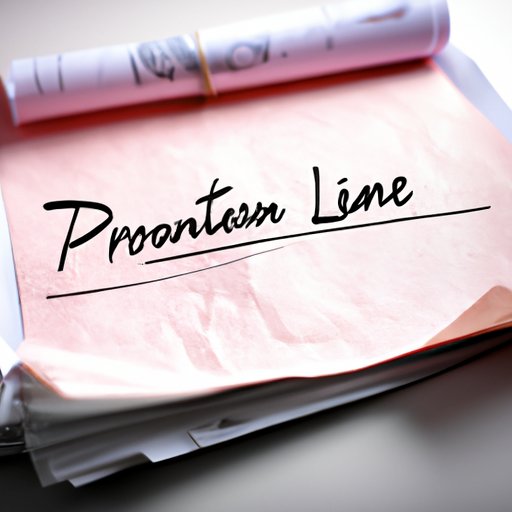Exploring the Significance of Themes in Writing
Welcome to this comprehensive guide to understanding the importance of themes in writing. Themes are the foundation of any good literary work, and they provide readers with a deeper understanding of the story. Throughout this article, we’ll explore the different types of themes, how they’re used in literature and film, and how you can develop a strong theme in your own writing.
A Comprehensive Guide to Understanding Theme
Before we dive into the different types of themes, let’s talk about what theme actually means. A theme is a central idea or message conveyed in a story, often related to a universal truth about human experience. Themes give readers a deeper understanding of the story by exploring its underlying message or moral.
Themes are important in writing because they connect the reader to the story and provide a deeper meaning and understanding of the plot. They can also be used to convey the author’s message or to challenge the reader with new ideas and perspectives.
A good theme should be universal, original, and relevant to the story. Let’s explore these characteristics in more detail.
Universality
A universal theme is one that is applicable to everyone, regardless of their background or experience. It’s something that readers can relate to and apply to their own lives. Examples of universal themes include love, courage, and death.
Originality
A good theme should be original, meaning it’s not clichéd or overused. It should feel fresh and new, even if it explores a universal concept. For example, exploring the theme of love in a unique way, such as through the eyes of a non-human character, can bring new life to an old concept.
Relevance
A good theme should be relevant to the story and its characters. It should be something that the characters experience and that impacts their lives. For example, a theme of redemption may be relevant to a character who has made mistakes in their past.
Now that we’ve explored the characteristics of a good theme, let’s look at some examples of well-executed themes in literature, film, and other media.
Examples of Well-Executed Themes
Some well-known themes include love and romance, good vs. evil, and freedom and oppression. These themes have been explored in countless literary works and have become staples in storytelling.
Love and romance, for example, are often explored in genres like romance novels and romantic comedies. Good vs. evil is a popular theme in fantasy and science fiction works, where characters often face moral dilemmas or battle against dark forces. And freedom and oppression is a common theme in stories about oppressed groups fighting for their rights.
But what makes these themes so successful? It’s their universality and relatability. Everyone experiences love, good and evil are universal concepts, and historical instances of oppression continue to resonate with readers and viewers today.
Top Themes in Literature and Their Significance
In this section, we’ll take a closer look at some of the top themes in literature and how they’ve influenced literary works across various genres.
Love and Romance
Love and romance is one of the most popular themes in literature. From Shakespeare’s “Romeo and Juliet” to modern-day romance novels, love stories have always captivated readers. Love stories often explore themes such as sacrifice, commitment, and the power of attraction.
Good vs. Evil
Good vs. evil is another popular theme that explores moral dilemmas and the inherent battle between good and bad. In literature, this theme often takes the form of a hero or protagonist battling against a villain or antagonist. This theme can be found in works ranging from classical epics like Homer’s “The Iliad” to contemporary works like J.K. Rowling’s “Harry Potter” series.
Freedom and Oppression
Freedom and oppression is a theme that explores the struggle of oppressed groups fighting for their rights. This theme is often found in historical literature, such as slave narratives and civil rights memoirs. It’s also common in dystopian works, where characters are oppressed by a totalitarian government or society.
These themes are just a few examples of the many universal themes found in literature. Other popular themes include coming of age, power and corruption, and the search for identity.
The Importance of Identifying Themes in Film
Themes are not limited to literature; they’re also an important part of film. Filmmakers use themes to convey their messages and to help viewers understand the story. However, unlike literature, film is a visual medium, which means themes can be conveyed through visuals as well as dialogue and plot.
Filmgoers should be aware of themes in what they watch because it can deepen their appreciation and understanding of the movie. By identifying the underlying message or moral of a film, viewers can gain a better understanding of the characters and their motivations.
Some examples of films with well-executed themes include “The Godfather,” which explores the theme of family and loyalty, and “The Shawshank Redemption,” which examines the theme of hope and redemption.
Adapting Themes Across Different Storytelling Media
Themes can be conveyed in many different storytelling media, including books, films, TV shows, and video games. However, the execution and interpretation of themes can vary greatly across media types.
For example, a theme explored in a book may be more complex than the same theme explored in a movie, as the book has more time to develop the concept. Video games can also explore themes in a unique way, as players can interact with the story and make decisions that impact the narrative.
Some examples of works that successfully adapt themes across media include “The Lord of the Rings” trilogy, which explores the theme of good vs. evil across books and films, and the “Bioshock” video game series, which explores themes of morality and free will in a unique, interactive way.

How to Develop a Theme for Your Writing
So, how can you develop a strong theme in your own writing? Here are some steps to follow:
Brainstorming Techniques
Start with brainstorming. Think about the message or moral you want to convey in your writing. Write down any thoughts that come to mind, even if they seem unrelated or scattered.
Identifying the Message You Want to Convey
Think about the message you want to convey to your readers. What do you want them to take away from your story? What universal truth do you want to explore?
Linking Themes to Characters and Plot
Once you have a general idea of your theme, start thinking about how it fits into your characters and plot. What experiences will your characters have that relate to your theme? How will your plot reinforce your theme?
Tips for Integrating Your Theme Seamlessly
Integrating your theme seamlessly is key to developing a strong piece of writing. Here are some tips to keep in mind:
- Make sure your theme is relevant to the story and its characters
- Show, don’t tell. Your theme should be conveyed through the actions and experiences of your characters, not through exposition.
- Avoid being too preachy or heavy-handed with your theme. Let the reader draw their own conclusions.
Examples of well-executed themes in published works include “To Kill a Mockingbird,” which explores the theme of racial injustice, and “The Hunger Games,” which examines the theme of power and corruption.
Conclusion
Themes are a crucial part of writing, whether it’s in literature, film, or other storytelling media. They provide readers and viewers with a deeper understanding of the story and its message, and can inspire new conversations and ideas.
Remember, a strong theme should be universal, original, and relevant to the story and its characters. By following the steps outlined in this article, you can develop a strong theme for your own writing and connect with your readers on a deeper level.
